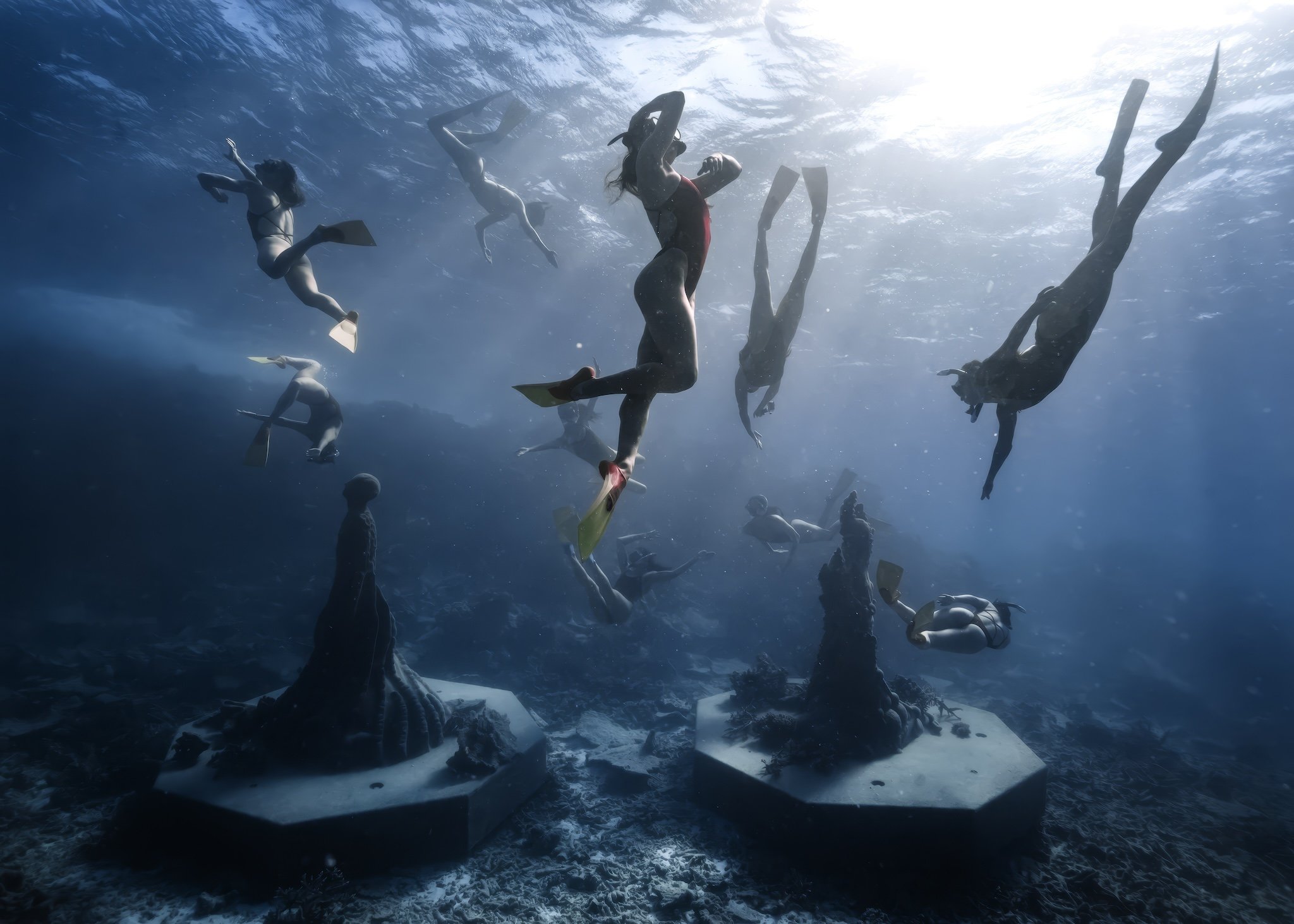
SMALL CHANGES
Join our #SmallChanges Ambassadors and help protect the Great Barrier Reef by making some small changes to you daily routine.
Why protect the reef?
The Great Barrier Reef, known as Sea Country to First Nations people, holds immense ecological, economic, and cultural significance. Ecologically, it is one of the world's most biodiverse ecosystems, providing critical habitats and acting as a natural coastal barrier. Economically, it attracts millions of tourists and generates billions in revenue, supporting industries like tourism and fishing. Culturally, it is vital to Indigenous Australian communities as a connection to their heritage.
While the reef faces threats from climate change and human activities, it is also resilient and capable of recovery with our combined support. If we all come together and make some small changes to our daily routines, we can safeguard the reef for future generations and the communities it sustains.
"Our athletes are not just champions in the water, they are champions for the reef. Their commitment to the protection of the Great Barrier Reef is an inspiration for all of us to contribute our bit.”
Marijke Frantzen, Artistic Swimming Australia
THe Ambassadors
Artistic Swimming Australia, featuring the elite athletes of the Australian Olympic Team, proudly supports MOUA's #SmallChanges campaign, which emphasises that while the Great Barrier Reef and corals around the world are in trouble, they are also resilient and worth protecting.
Each of us can help fight climate change and protect the Great Barrier Reef by making just a few #SmallChanges to our everyday lives. The stunning coral growth on the museum’s underwater art is living proof of the reef’s resilience, and the support of the Australian Olympic Team is a timely reminder of the amazing things we can achieve if we work together as a team.
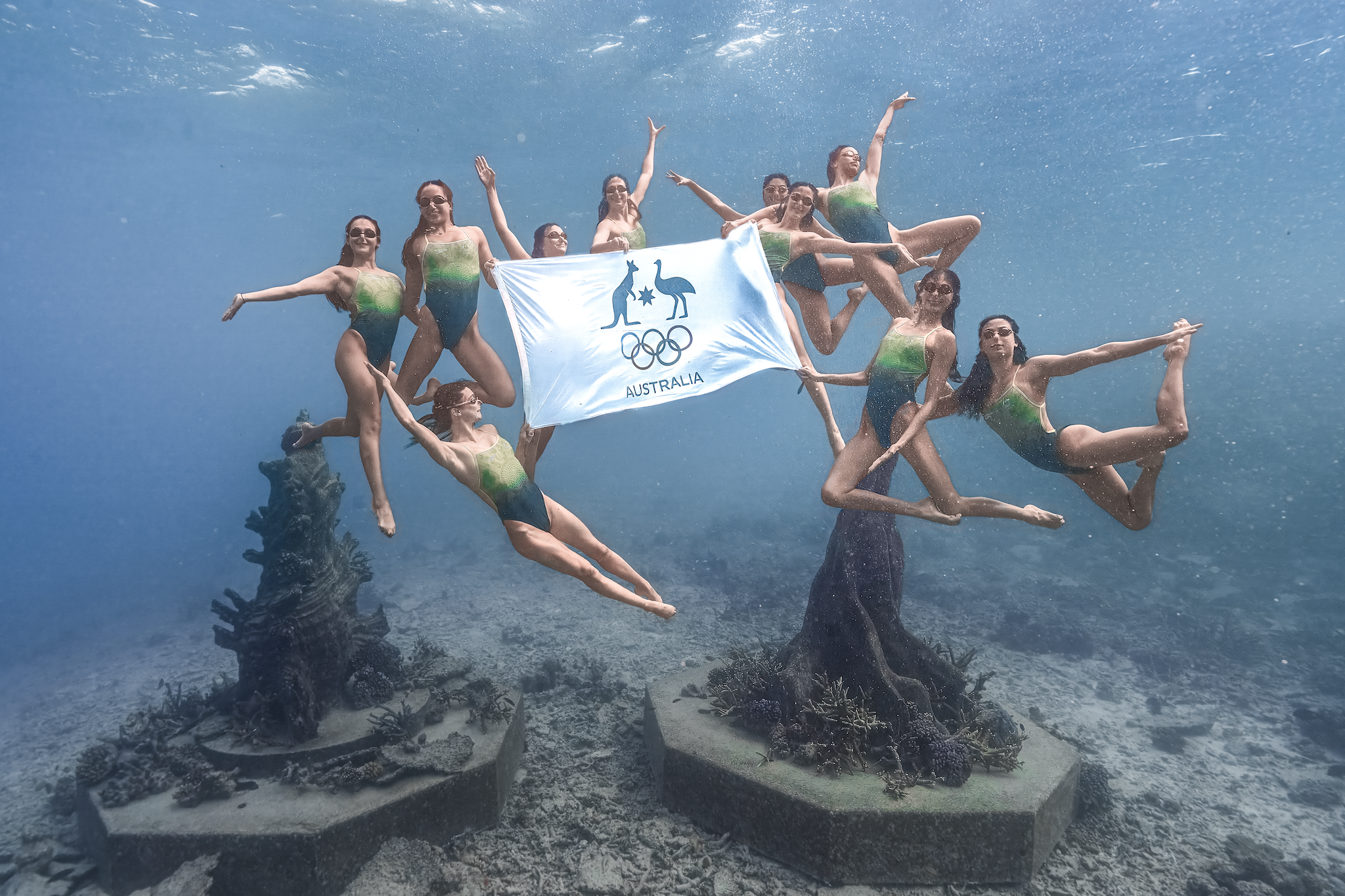
MOUA ASA Dive Into Greatness, Credits: Mauro Barberis, Mauceano Pictures @mauceano
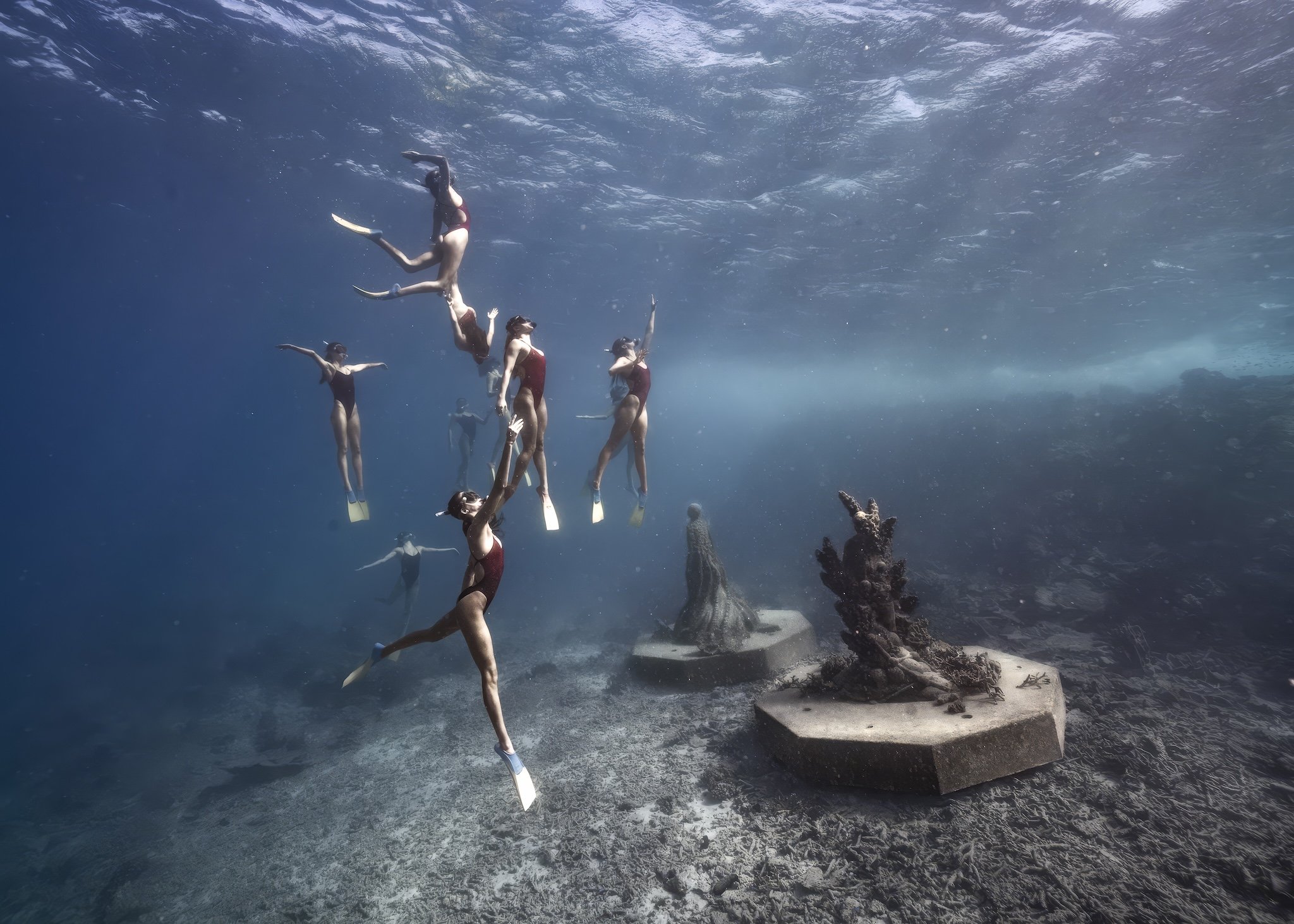
MOUA ASA Dive Into Greatness, Credits: Mauro Barberis, Mauceano Pictures mauceano
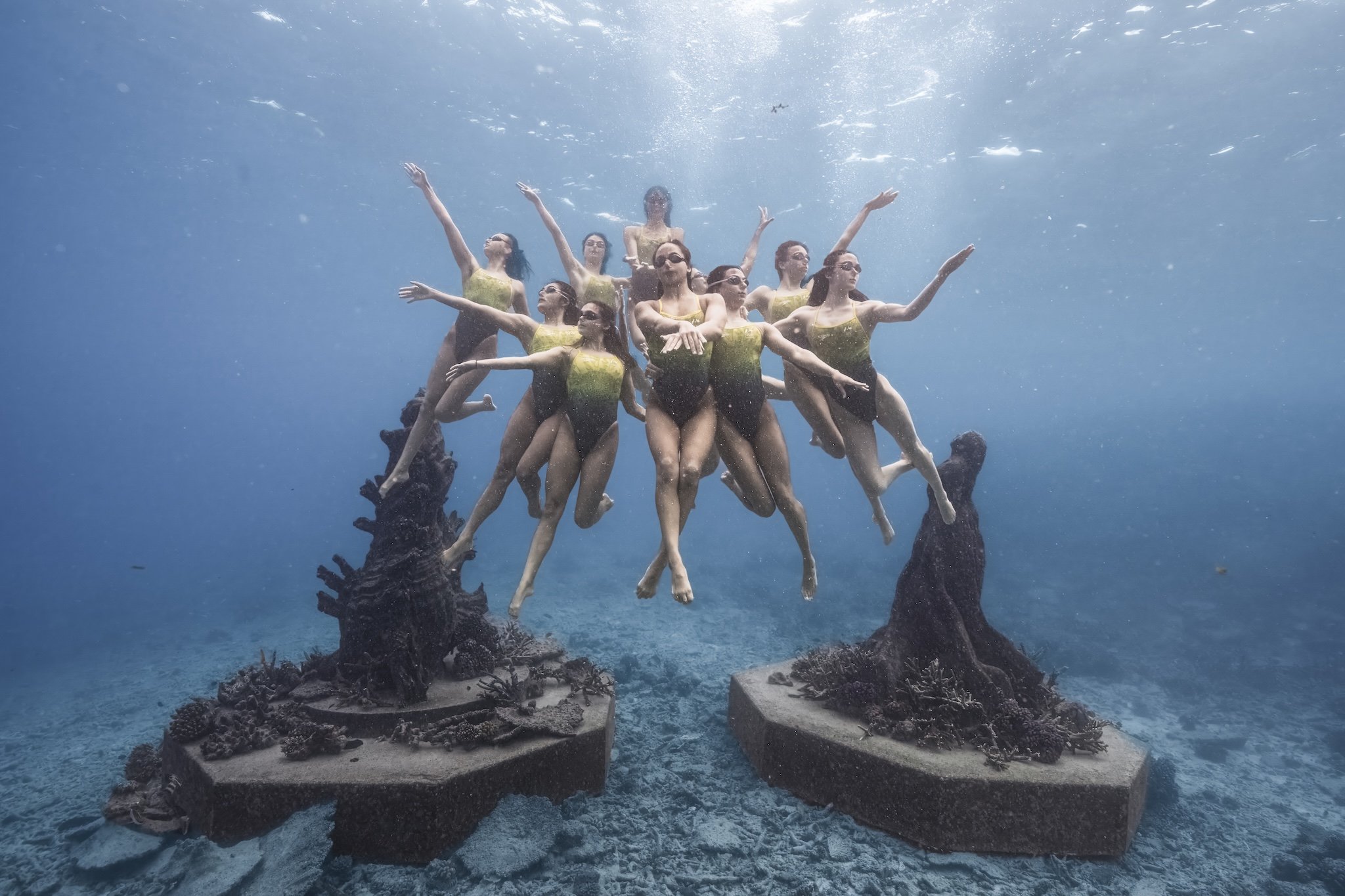
MOUA ASA Dive Into Greatness, Credits: Mauro Barberis, Mauceano Pictures mauceano

MOUA ASA Dive Into Greatness, Credits: Mauro Barberis, Mauceano Pictures mauceano
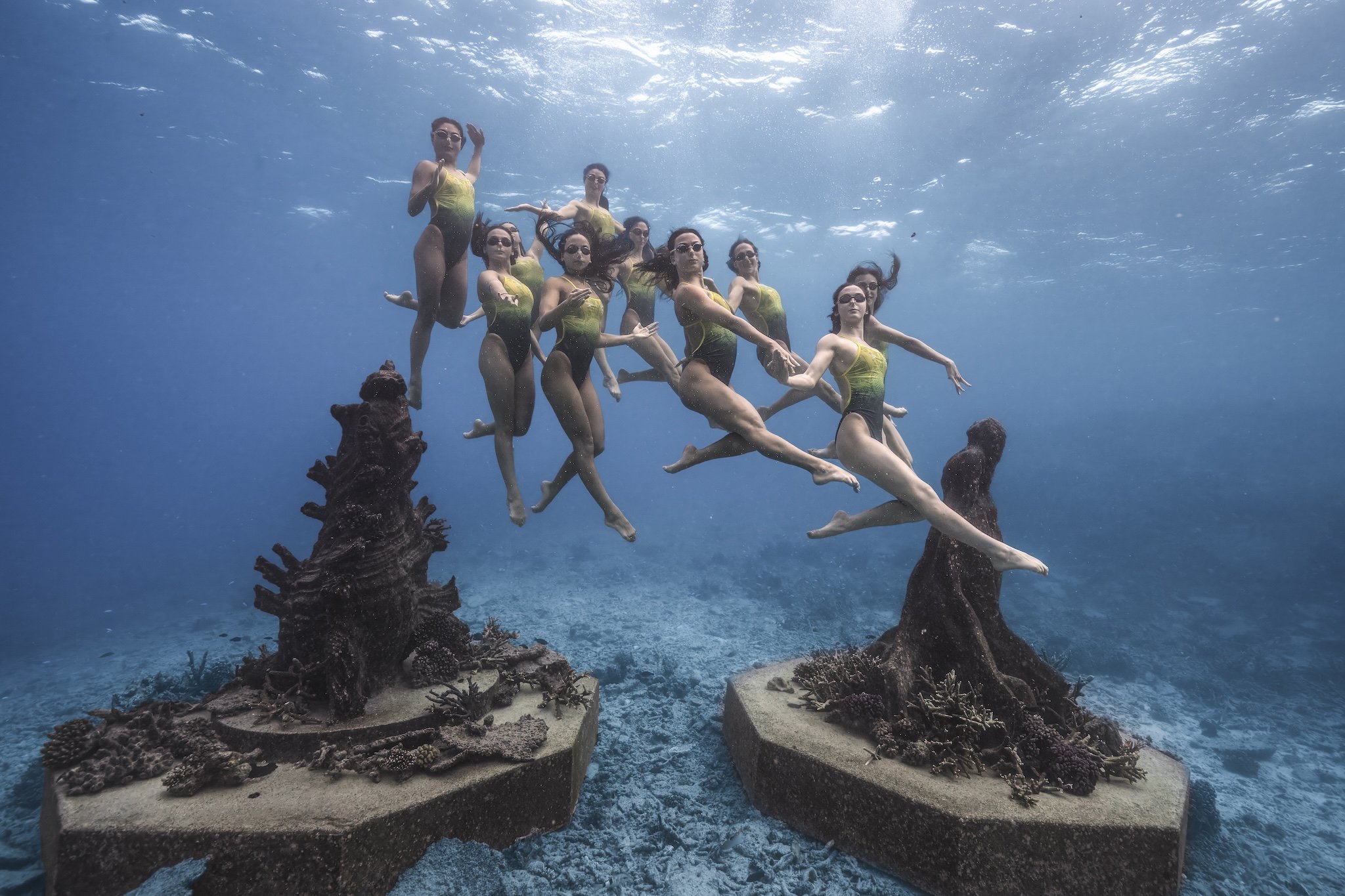
MOUA ASA Dive Into Greatness, Credits: Mauro Barberis, Mauceano Pictures mauceano
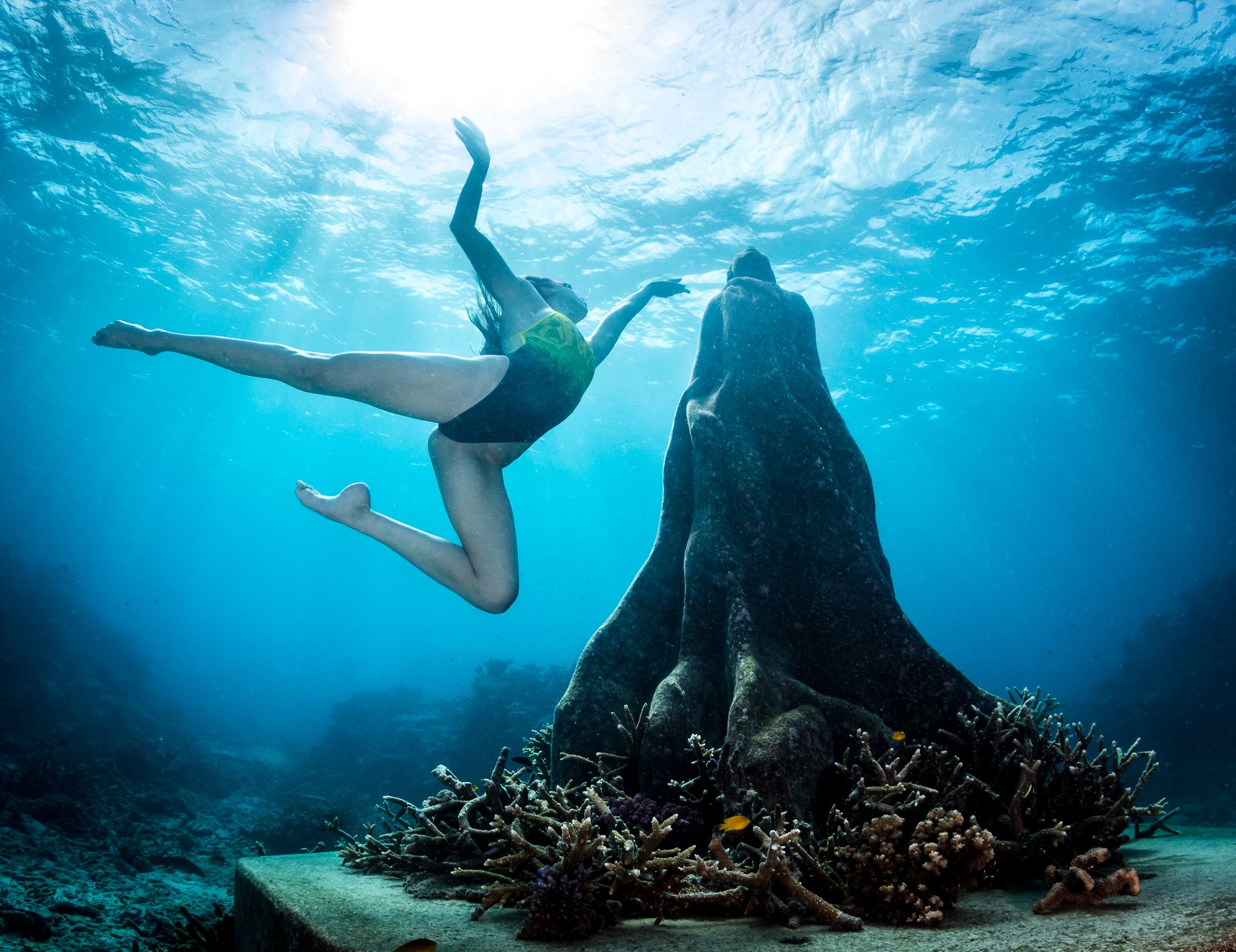
MOUA ASA Dive Into Greatness, Credits: Matt Curnock @matt_curnock
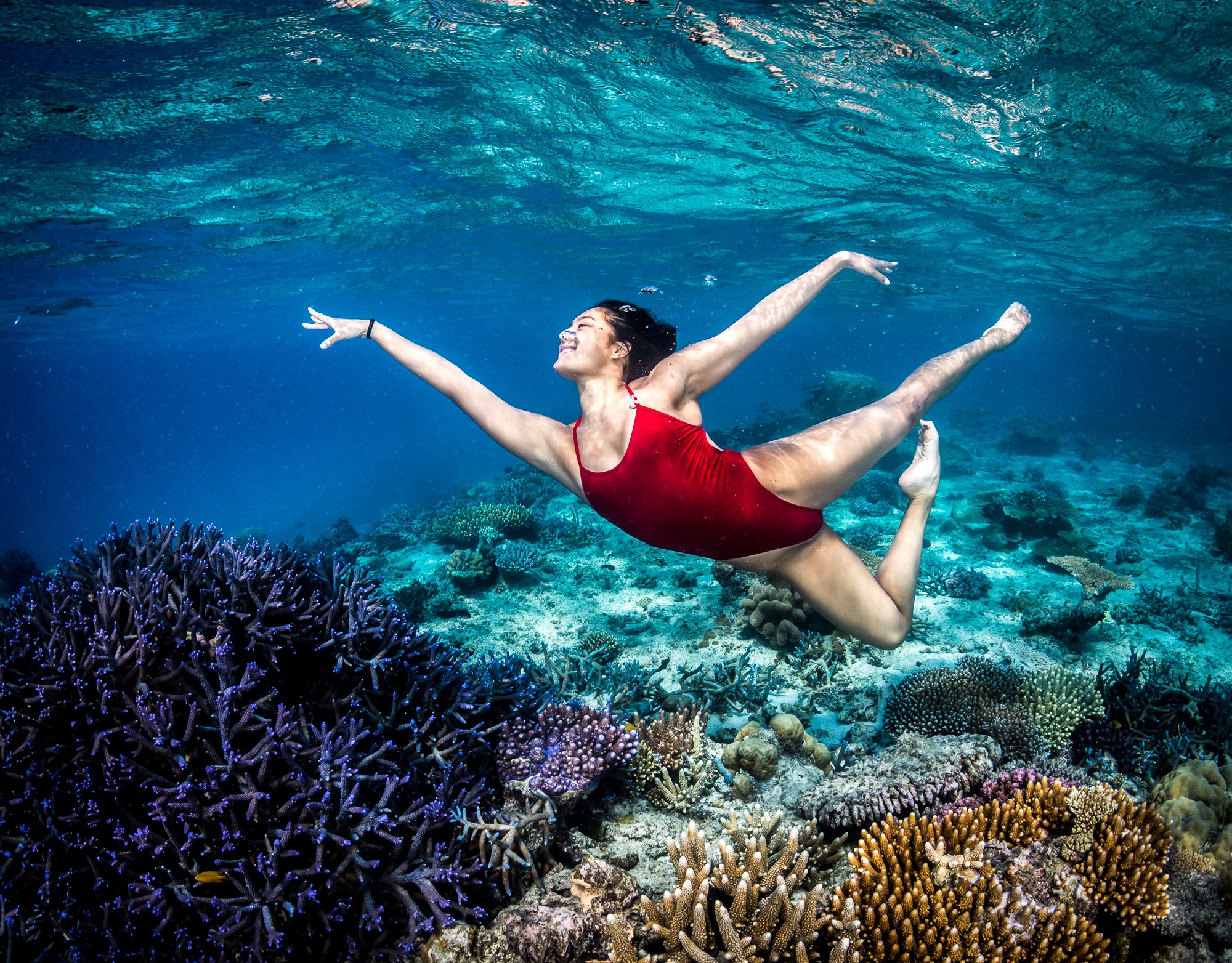
MOUA ASA Dive Into Greatness, Credits: Matt Curnock @matt_curnock
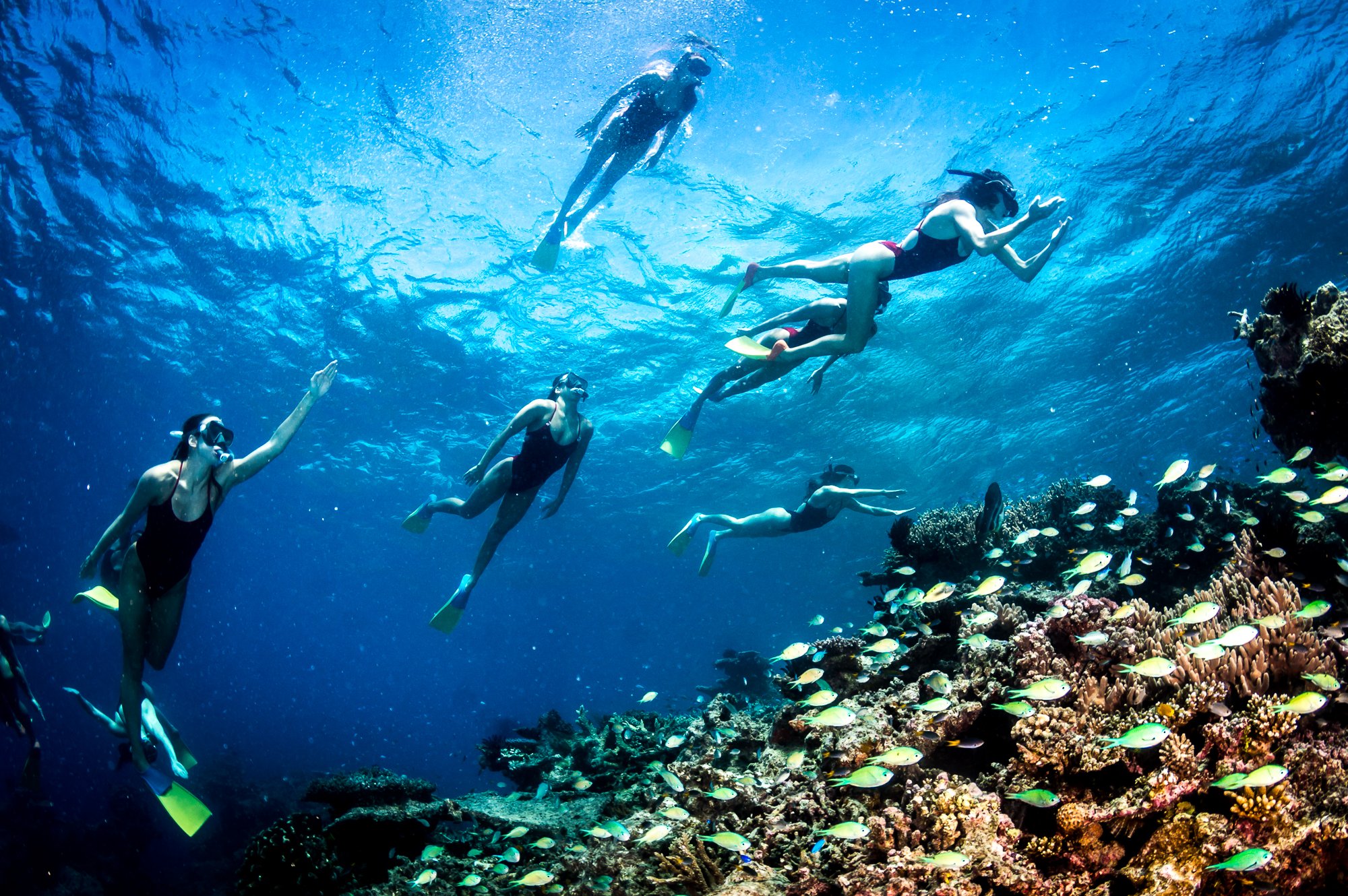
MOUA ASA Dive Into Greatness, Credits: Matt Curnock @matt_curnock
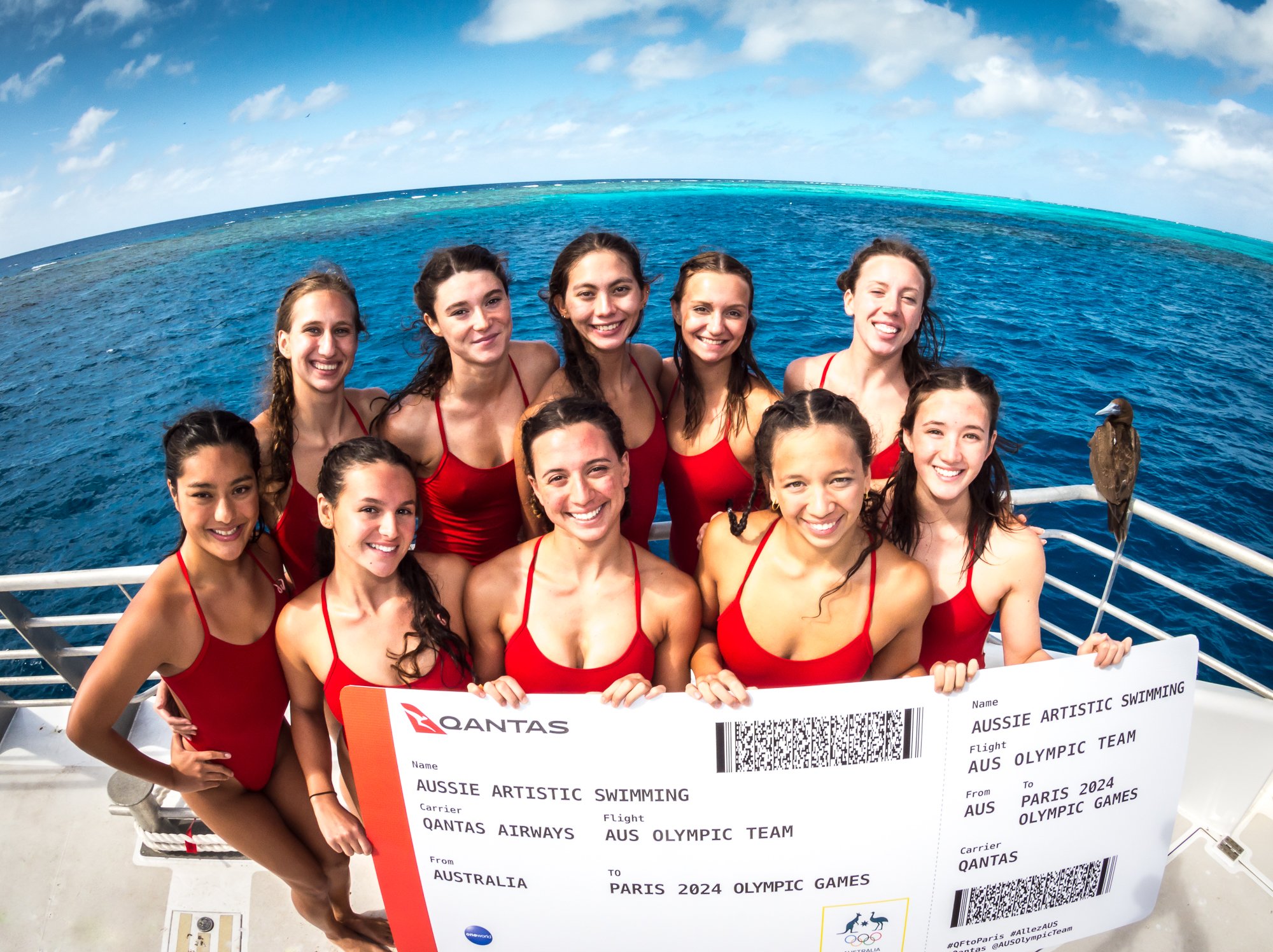
MOUA ASA Dive Into Greatness, Credits: Matt Curnock @matt_curnock
Supported By
“[MOUA is] a living piece of art that communicates to the people how important research is, how important coral reefs are, and how all these aspects – art, science, humanity – can come together to protect the reef.”
Dr Katharina Fabricius, Ocean Sentinel
What CAN I DO?
Each and every one of us can contribute to fighting climate change and protecting the Great Barrier Reef by making some #SmallChanges changes.
Make small Daily changes
By taking collective action, we can effectively combat climate change and ensure the long-term health of the Great Barrier Reef - all it takes are #SmallChanges to our daily routine.
-
Share reef-safe messages on social media #MOUA #SmallChanges
Reduce electricity use
Turn off power at the wall when not in use
Use energy efficient appliances and LED light fittings
Catch the breeze with open windows instead of air conditioners
Reduce your carbon emissions when getting around
Ride, walk, carpool or use public transport
Consider vehicles with improved fuel efficiency
Look at ways to reduce your greenhouse gas emissions
Consider using renewable energy
Install solar power and solar hot water systems
Purchase green power if available
Reduce, reuse or recycle
Donate items to charity or swap with friends and family, don’t send to landfill
Recycle whatever and whenever you can
Look for food and products with minimal or no packaging, or packaging that can be recycled
Audit how much plastic you’re using and find ways to minimise it, for example take reusable containers for your lunch, reusable shopping bags, or purchase bulk foods
Stop using single-use
Bring your own reusable coffee cups and say no to single-use straws
When eating out, take reusable containers and cutlery instead of using plastic
Be a conscious consumer
Make informed choices about the products you buy and, where possible, consider choosing sustainable and ethical products
Swap and share products, buy second hand, and buy locally-produced items
Literally make changes in your house and backyard
Set up a worm farm and use the castings to fertilise your garden
Compost food scraps, shredded paper, grass clippings, leaves and cuttings (except noxious weeds and diseased cuttings), vacuum cleaner dust, used vegetable oil, tea leaves and bags, coffee grounds and egg shells
Wash your car on the lawn to minimise detergent runoff into drains
Operate your dishwasher and washing machine only when you have a full load
Minimise water runoff by planting trees, garden beds and ground cover around your home
Use environmentally-friendly cleaners and fertilisers
Keep gutters, sinks and drains free of chemicals and rubbish — what washes down sinks and drains could end up on the Reef
Clean filters in your air conditioner and dishwasher regularly so they run efficiently
Get involved
Join community clean-ups
Share your messages and knowledge about the Reef with others, i.e. share reef-safe messages on social media - scroll down to share this!
-
Reduce and recycle
Encourage recycling at your workplace
Only order the stationery you need
Think before you print and utilise electronic publishing
Re-use office paper — use recycled paper and promote double sided printing and copying
Take your own coffee mug instead of using polystyrene cups
When organising events, avoid single-use plastics and look for food and products with minimal or no packaging, or packaging that can be recycled
Reduce energy consumption
Switch off lights when not in your workplace
Turn your computer monitor off when not in use
Have your air conditioner maintained regularly
-
At home action to take to school
Pack a ‘nude food’ zero waste lunchbox
Use bento box style lunchboxes to pack food without plastic wraps or packets
Use reusable water bottles, not single-use plastic
Get involved in school activities and education initiatives
Encourage recycling and revegetation program
Reduce plastic use in your school and conduct a waste audit to target the most common items
Conserve and manage water and energy use in school buildings
Hold a clean-up day at your school, park, creek, beach or oval
Form an environmental committee in your school to make your school more sustainable
Join the Great Barrier Reef Marine Park Authority Reef Guardian Schools program (if your school is in the catchment region)
Use the 'at home' messages at your school — get everyone involved
-
Protect your patch — follow zoning rules out on the water, report illegal activity, and follow these responsible reef practices
Take your rubbish home with you
If you see rubbish, pick it up and recycle or dispose of it thoughtfully
Choose high standard tourism operators with eco certification
Take part in Eye on the Reef, a monitoring program that enables anyone who visits the Great Barrier Reef to contribute to its long-term protection. Simply download the app and share what you see or complete a monitoring survey
Check out Responsible Reef Practices tips before heading out on the water
small changes Checklist
We understand that even making small changes takes time so why not download and print out our checklist to help you keep on track?
A big thank you to the Great Barrier Reef Marine Park Authority (GBRMPA) for providing the above list of things we can all do to help protect the reef as part of their Love the Reef campaign.
Help us help the Reef
Support us in drawing attention to the challenges the reef faces.





